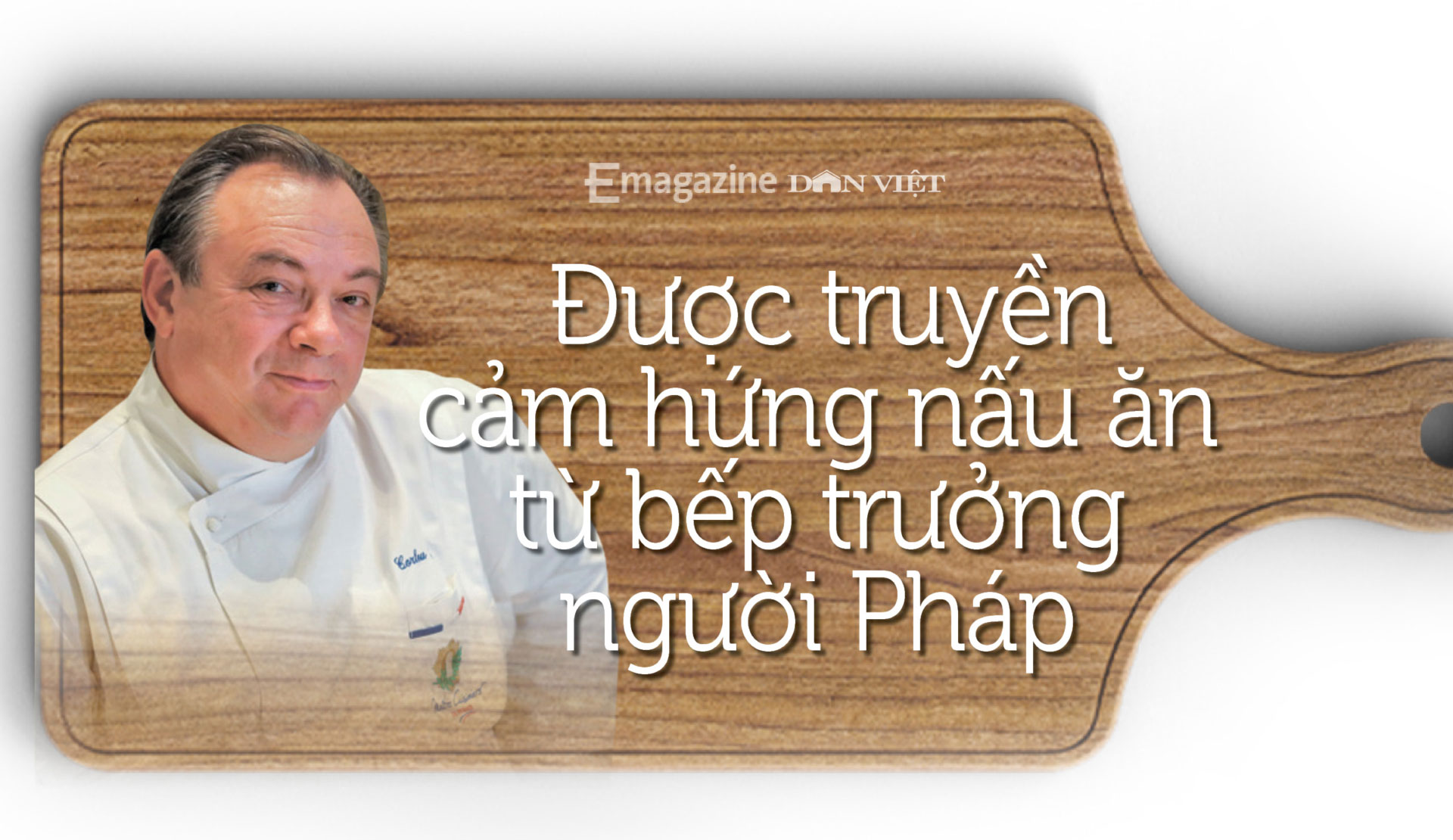
Since childhood , she has been exposed to cooking and inherited cooking experience from her grandmother and mother . Why did n't she pursue a career as a chef from the beginning but chose to study teaching ?
- When I was young, my family lived with my grandmother. My grandmother, parents and sister all knew how to cook, so everyone cooked for them, and I hardly had to do anything. When I was 13, I went to school a year early and was admitted to the National University's specialized school. At that time, specialized schools required boarding school and living independently away from my family, but I didn't know anything about cooking, and that was still the case when I went to university. So, although I knew and was exposed to cooking since I was young, the path I chose was not related to the kitchen. I was trained to be a foreign language teacher.
What turning point influenced and made you seriously pursue a career in cooking ?
- After graduating from university, it was also difficult for me to find a job. At that time, I did many jobs, and taught for a while. Later, when I worked at the Metropole Hotel in Hanoi , at that time, there were very few people studying foreign languages, almost all the kitchen staff did not know foreign languages, while at the hotel, all the bosses from the Board of Directors to the head chef were foreigners. I went there to work as an interpreter for everyone cooking. Then, during the translation process, I became the one who understood the cooking process deeply, and gradually it naturally became a profession.
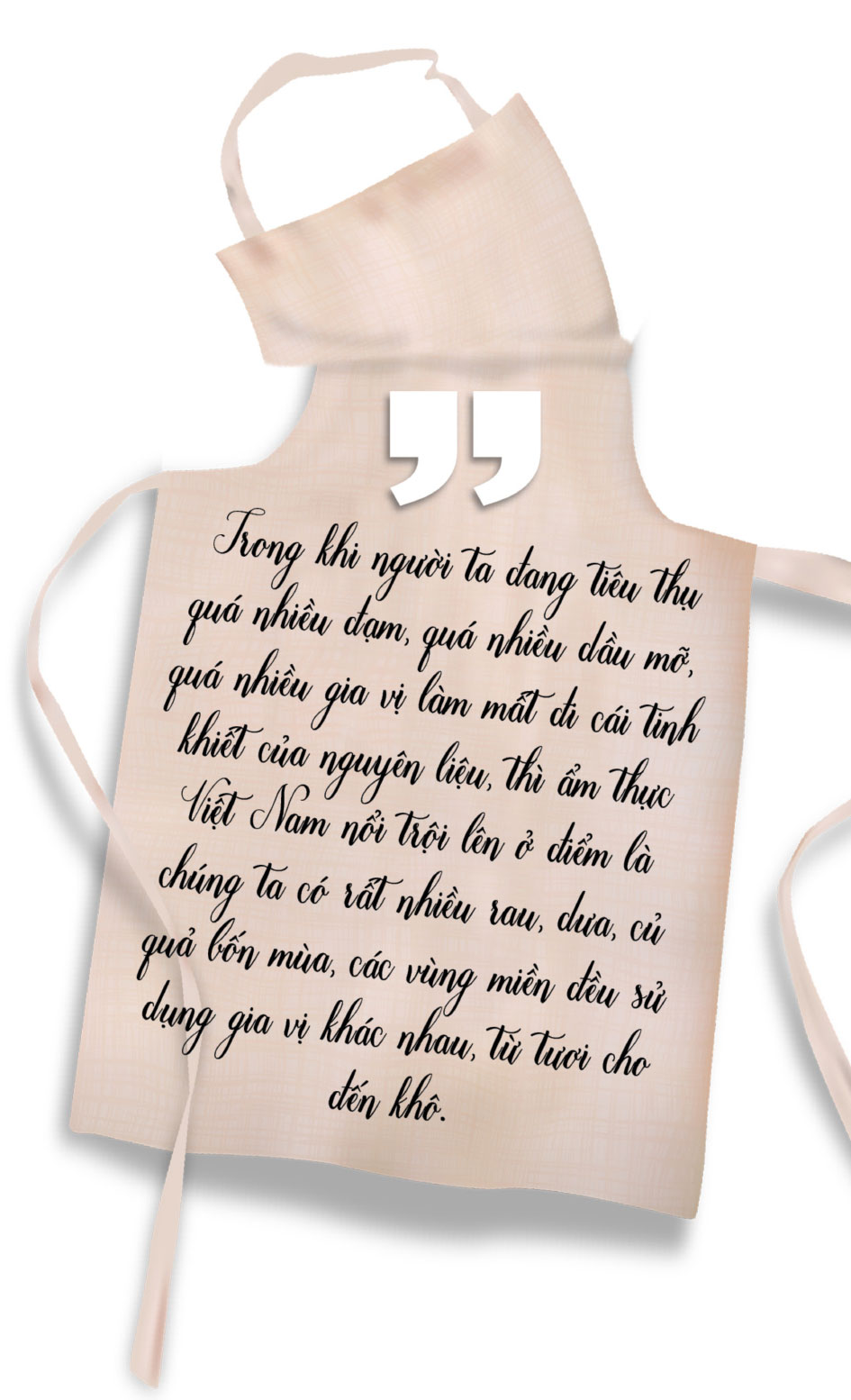
On that path , who is the teacher who inspired and influenced you the most ?
- It was the French chef Didier Corlou who inspired me. Although he was not the first boss I worked with, he was the one who made me realize how wonderful Vietnamese cuisine is. He has a great passion for Vietnamese cuisine and spent a lot of time researching regional cuisine, typical spices and cooking methods. His passion for learning naturally drew me in without me realizing it. In the kitchen, I worked as an interpreter and was responsible for conveying all the information, cooking in the kitchen with the chef. From then on, I was inspired by his passion.
Chef Didier Corlou once said something that I remember very well: "Vietnamese cuisine is wonderful, you must be proud of your cuisine!". In the eyes of foreigners, they consider Vietnamese cuisine to be wonderful. At that time, I realized that Vietnamese cuisine is really rich and we must find ways to elevate our country's cuisine to the world level. From then on, my teachers and I began to find ways to bring Vietnamese cuisine abroad, to promote it to friends around the world.
Vietnamese dishes are mainly made from vegetables , tubers , and fruits , and do not use as much meat as Western countries . So why is Vietnamese food so attractive to international tourists ?
- In a world where some countries use spices but too much, sometimes the food only tastes spicy or smells like curry or strong spices overpower the flavor of the main ingredients; some countries eat too much protein, lacking balance, Vietnamese cuisine is very balanced and harmonious.
While people are consuming too much protein, too much fat, too many spices, losing the purity of the ingredients, Vietnamese cuisine stands out in that we have a lot of vegetables, melons, tubers and fruits in all four seasons, and different regions use different spices, from fresh to dried. However, we have to combine them delicately, so that when we eat meat, it is meat, when we eat fish, it is fish, but each fish has its own fish smell, each meat has its own meat smell, and the same goes for seafood. That is the sophistication of Vietnamese cuisine that has won the hearts of foreign tourists.
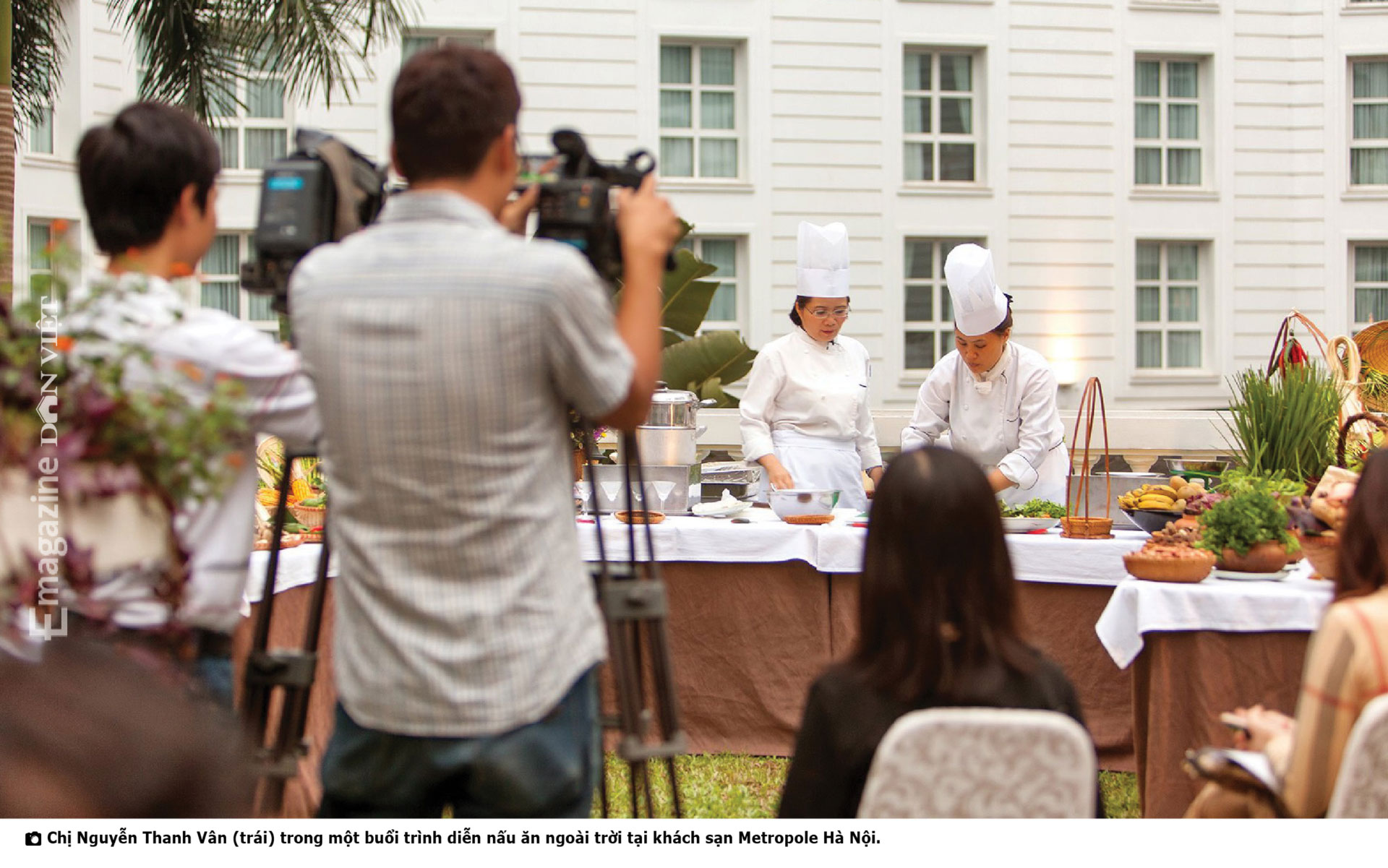
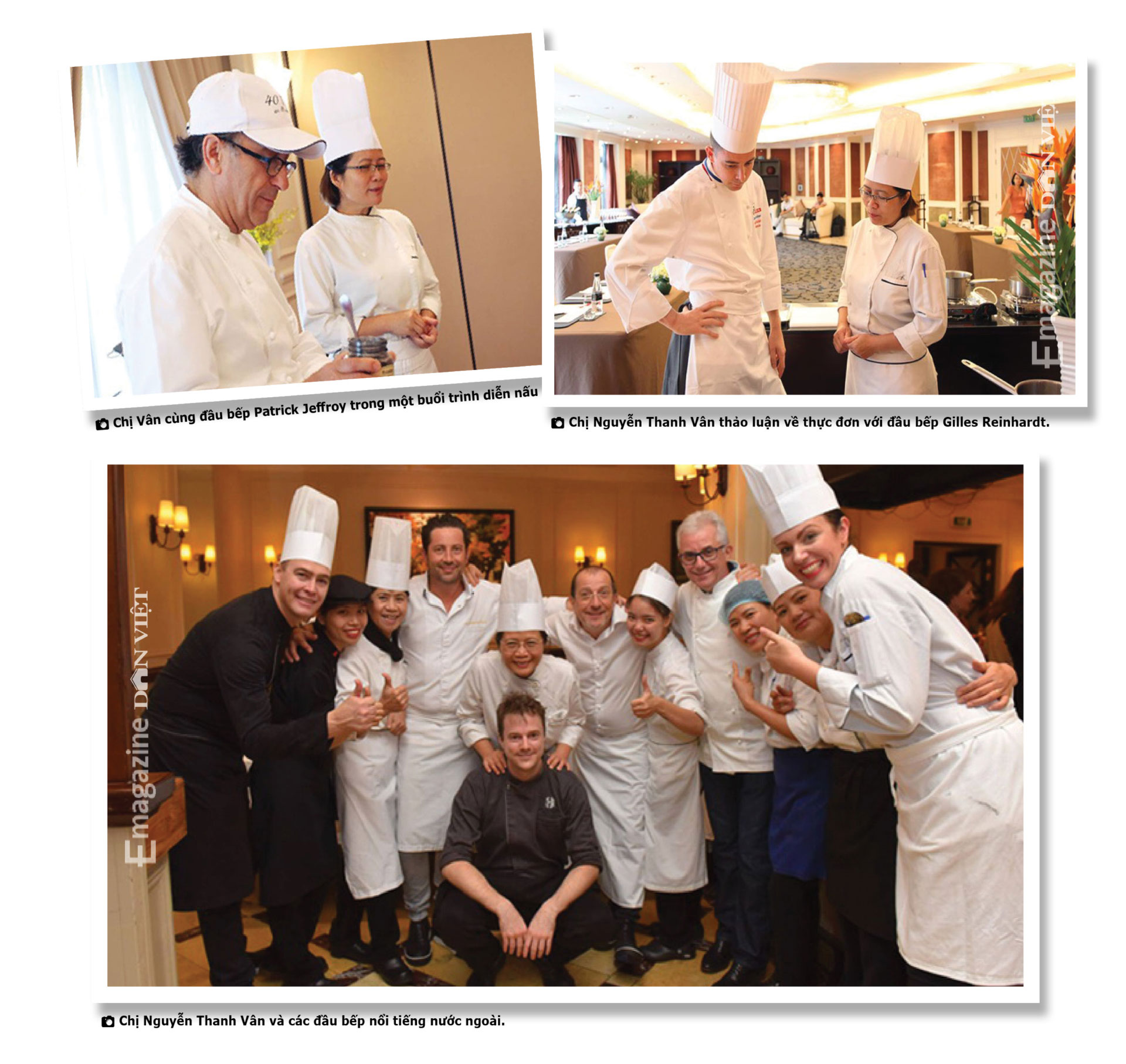
Vietnamese people are very good at preparing food and unique in the way they enjoy food . So how can we prepare food that is suitable for tourists from all over the world ?
- The Metropole Hotel where I work can be considered the first 5-star hotel to welcome international guests back when Vietnam began to open its doors to foreign investment. The entire board of directors are foreigners, tourists from all over the world visit, almost all the largest groups of guests come.
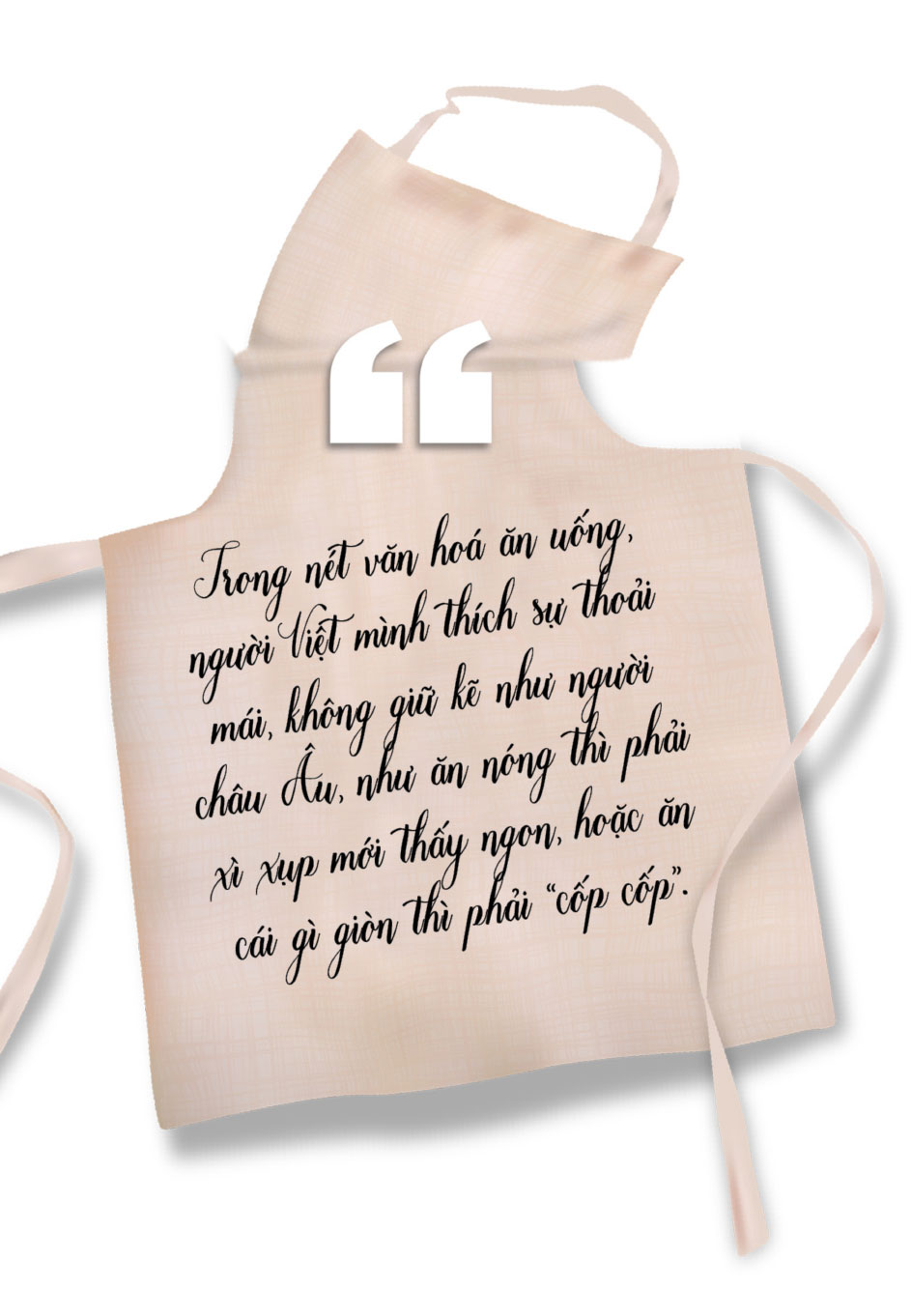
However, at that time, Vietnamese cuisine was not yet on the world culinary map, so choosing only Vietnamese dishes for them was probably not very suitable. Therefore, the team of chefs, especially from the head chef to my assistant, had to think a lot about how to skillfully introduce the country's cuisine while combining it with other cultures.
Cuisine is a cultural fusion. For example, when combining your country's cuisine with another country's: Vietnam has a very typical claypot rice dish, Spain has Paella rice which is cooked with saffron or black squid ink in a very large pan. Then they will stir-fry it with olive oil and many of their seafood dishes as well as vegetables... So I will be creative in cooking Paella rice in a claypot.
Or when talking about French cuisine, people often mention dishes using foie gras and snails - which are French specialties. I will combine them by making spring rolls with foie gras or snail spring rolls, so that the cuisine of the two cultures is harmonious, people eat spring rolls and unexpectedly find ingredients from their country inside, and eat rice and find the flavor of their country's cuisine in that pot.
Every day, every week, every month, the chefs here have to create dishes and combine cuisines from countries around the world.
The decoration of the dish must be eye - catching , the flavor of the dipping sauce must be special , then use your mouth to touch the food to feel the flavor . chewy , soft , sweet , bitter , spicy , crunchy ... , when outsiders hear the " slurping " and " crackling " sounds , they can feel how delicious the dish is . So is this the essence of Vietnamese cuisine , ma'am ?
- Actually, this is not exactly the essence of Vietnamese cuisine, but it is common to all countries. When it comes to cuisine, most people pay attention to the harmonious combination of spices in the dish as well as the reasonable adjustment of time and temperature during the cooking process so that each dish is of the best quality. When a dish has a harmonious combination of many states such as soft, hard, sweet, spicy, it will certainly be highly appreciated by diners.
For example, when cooking a French dish, you have to try to combine it so that the dish becomes the most harmonious. Or like a European cake, there will be many forms combined inside. When looking from the outside, you must see a hard crust, the next layer of cake must be spongy, soft, moderately moist, and finally when cutting the cake, you will see a layer of delicious, fatty sauce flowing out.
It is said that when eating, Vietnamese people make a lot of noise, but foreigners try not to make any noise. When eating pho, foreigners do not hear slurping sounds, and when eating very crispy things, they bite very lightly so as not to make a "cluck" sound. Indeed, in the culture of eating, Vietnamese people like to be comfortable, not reserved like Europeans, such as when eating hot food, they have to slurp to enjoy it, or when eating something crispy, they have to "cluck". So it can be seen that culinary culture is different in each place, so when interacting and exchanging with different cultures, we just respect the common culture.
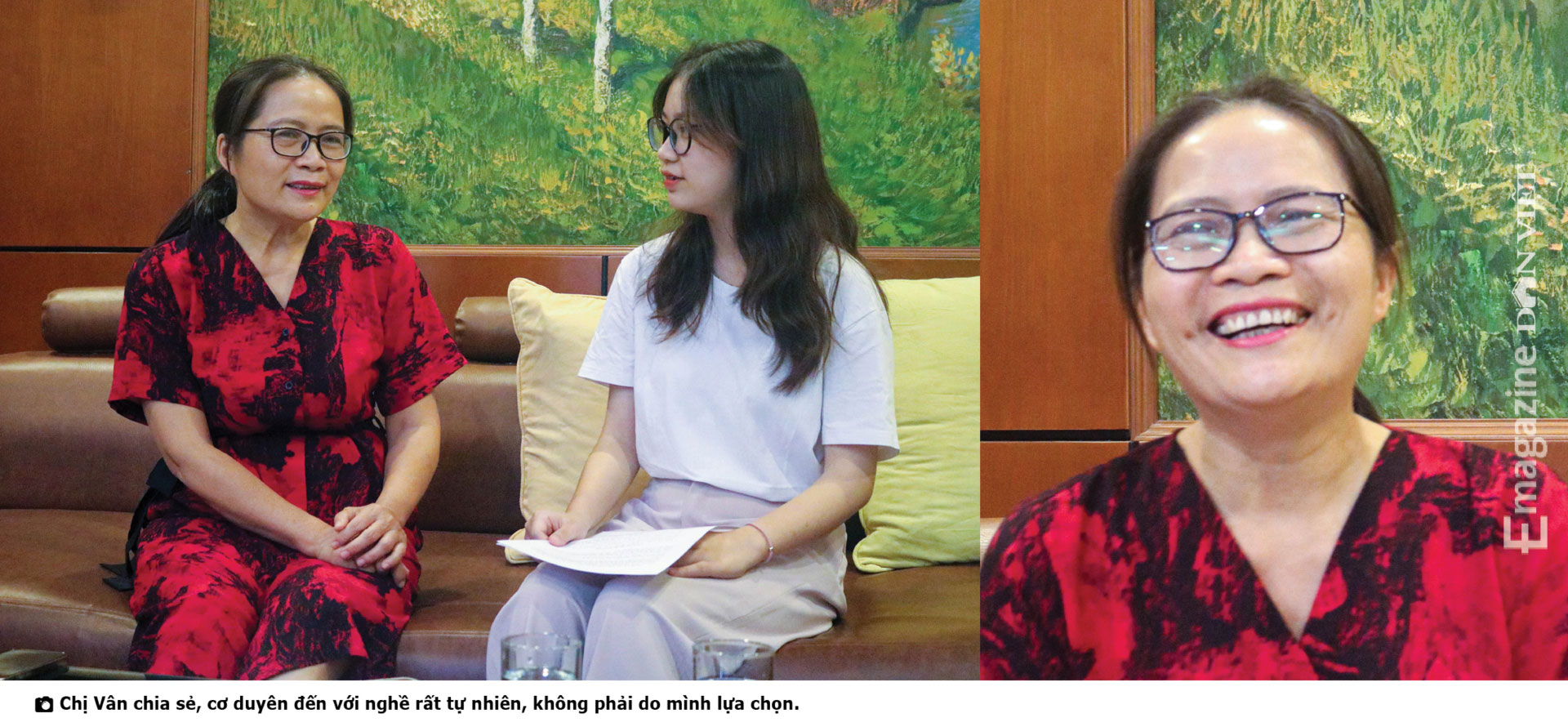

Can you tell us about your journey from when you started cooking for heads of state ? national or not ?
- The opportunity to serve heads of state came to me very naturally, I myself did not have the right to choose because it was part of the flow of work when I worked at the Metropole Hotel. Up to now, compared to other five-star hotels, the Metropole is still the hotel that welcomes many heads of state as well as many important delegations in the world. As the second person with authority in the kitchen, I myself am forced to take charge of important meals when assigned.
From the preparation to welcome the group in the most meticulous way, knowing who the group consists of, how many days they will stay at the hotel, how many meals they will have at the hotel, to planning which meals the group will eat purely European, which meals will be purely Asian and which meals will combine both European and Asian. All of these steps will of course fall under the scope of my work, and when the work comes to hand, I have to take care of it.
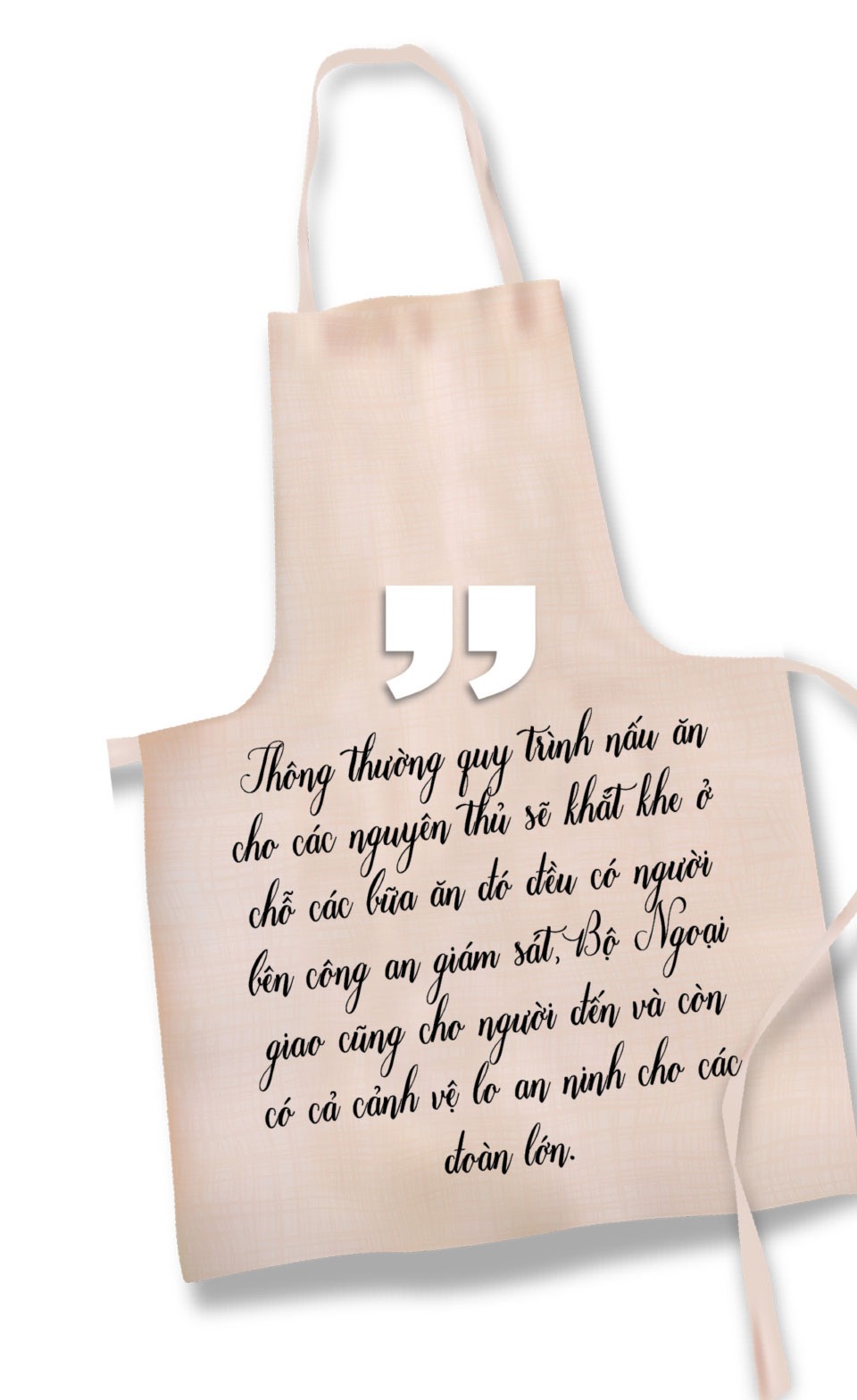
Is the cooking process as strict as cooking a normal dish ?
- We receive information about the leaders' schedules about half a year in advance. Usually, when we receive information about a leader's visit, all departments in the hotel have to prepare from how the receptionist will welcome them, how the housekeeping will arrange the rooms, how many meals the kitchen will have to prepare.
This means that we have to prepare the meal carefully several months in advance. Specifically, we will think about what dishes to serve them; how many meals they will eat, how to divide the meal time... The menu is often not decided by us but needs to be sent for approval, so it must be formed early. During the approval process, both delegations approve, and then it must be sent to the Ministry of Foreign Affairs for approval or to the delegation in charge of their side for approval.
Then they will let us know if this dish is okay and give us requirements on the nature of the meal. For example, some meals must be eaten quickly, some can last for several hours, some meals are light meals, some meals are standing parties, some meals are seated parties. In short, we have been required to prepare a complete menu for several months in advance.
Next, in the cooking stage, we also have to go through many different stages, we have to be careful from the very first steps. For example, in the step of preparing ingredients, I have to choose very carefully, have to choose a reputable supplier and have to preserve food in the safest way. Besides, chefs often have to choose a separate service team. In addition to me, who is in charge of tasks such as: making the menu, giving samples, instructing everyone to practice and supervising the meal, there will be other chefs because I alone cannot cook for the whole group with a menu with so many dishes. Therefore, in the kitchen, there will always be someone in charge of appetizers, someone in charge of main dishes such as fish, meat or seafood, someone in charge of pre-desserts, someone in charge of desserts. The processing stage also has to be very precisely controlled in terms of quantity and quality to meet the required standards from the cutting, slicing, peeling, blanching, processing stages until the dishes are served, they must be directly brought out to each plate.
Normally, the cooking process is strict in that all meals are supervised by police officers, the Ministry of Foreign Affairs also sends people and there are also security guards for large delegations. They usually come several times a day. The first time is to ask the delegation what time they will eat today, how many people will be eating, what the menu is, and ask for the menu to review in advance. Before cooking, they require all the dishes on the menu to be cooked, and a sample portion for them to bring back for testing, to see if there are any problems with the food, whether the food contains residues, pesticides, preservatives, or toxic substances. In general, they test many things. At meals, they also stand to supervise, then take samples again to store, for at least 2 days.
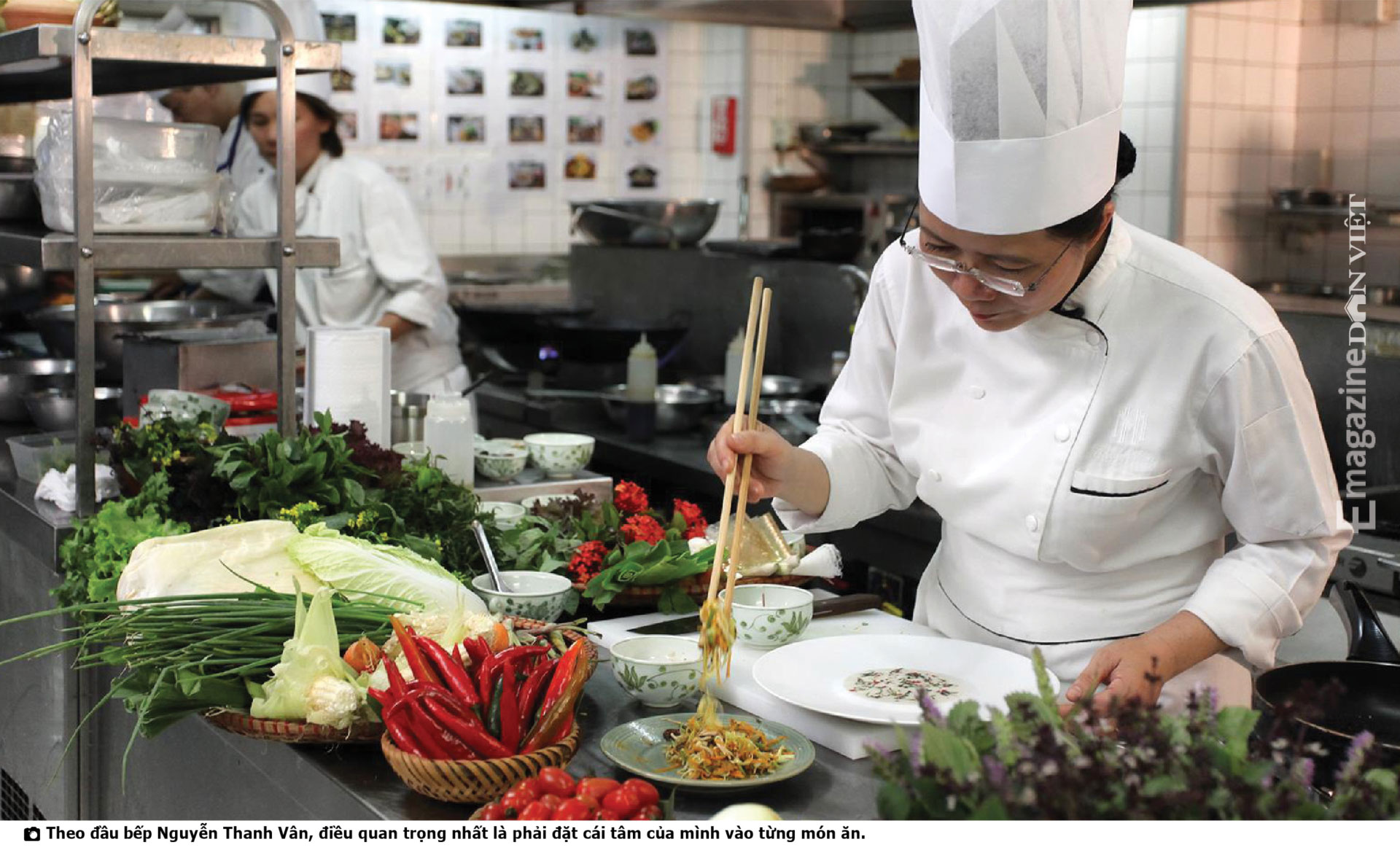
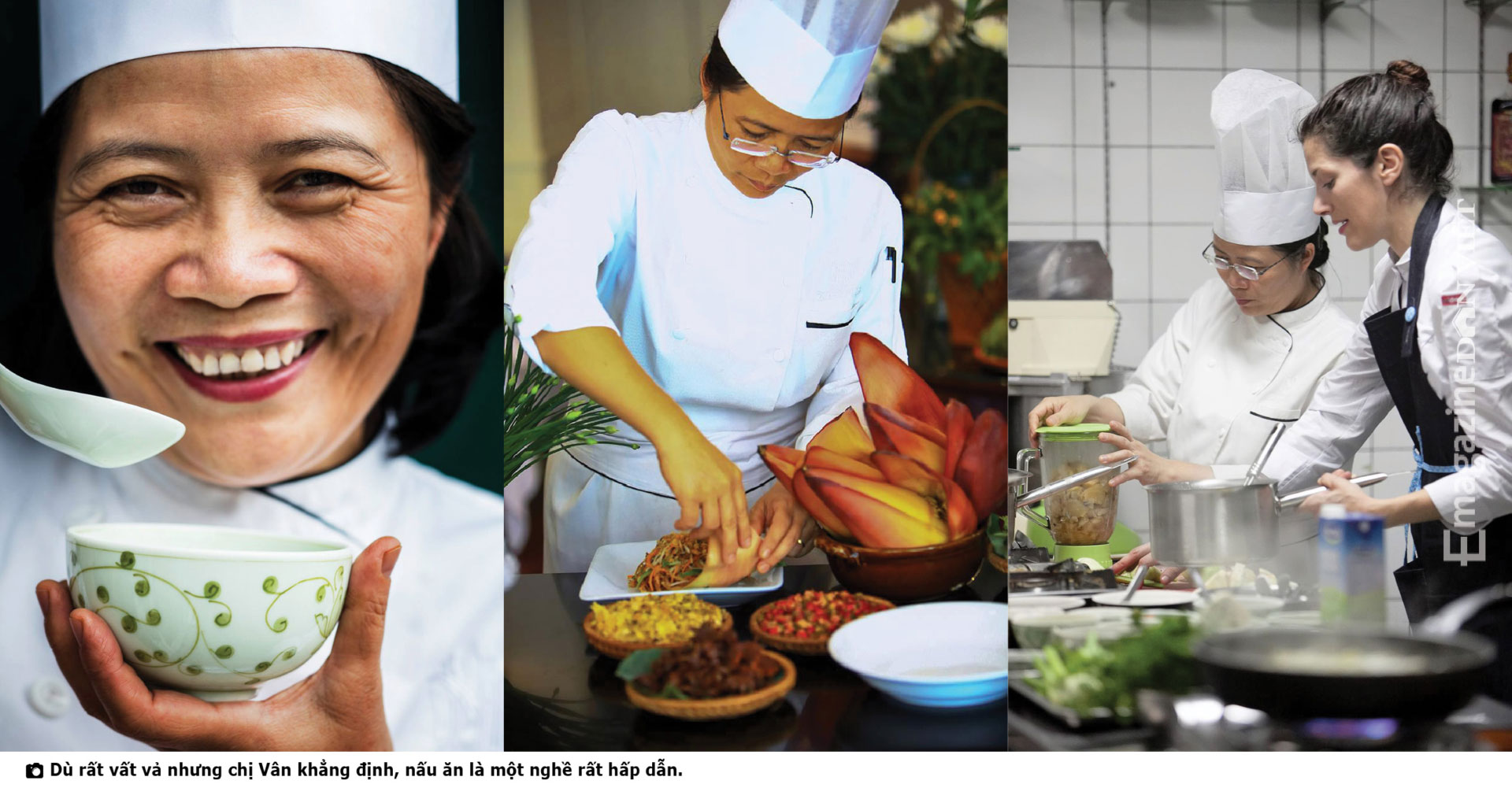
She has had the opportunity to serve many heads of state . country . But each country has a different culinary culture and each head of state will also set their own requirements and rules for their dishes . How did you implement those requirements ? How can you adjust and balance the flavors of the dishes to suit the representative of each country ?
- In meals served to foreign guests, I try to harmoniously combine Vietnamese cuisine and that of other countries. As for whether delegations or heads of state have any requests, almost none. They often seem difficult to please on the outside, but in fact they are very open, friendly, cheerful and respectful of workers. The menu is approved by the Ministry of Foreign Affairs and their delegation, and we mainly adjust it to suit their work schedules. And we also try to keep the menu simple, without using too many strange ingredients. Therefore, we do not include too many regional specialties on the menu.
The heads of state are also very simple, they just need to make the meal harmonious and enjoyable because normally in those meals, they will mainly discuss important matters. They eat and work at the same time, so they do not have too high requirements for the dishes, which are completely up to the chefs. I myself have a certain amount of experience, so I also know which dishes will be served in this meal that are suitable for the time of the meal, which dishes are delicious, easy to eat and still ensure the cultural features of Vietnam as well as the culture of the host country.
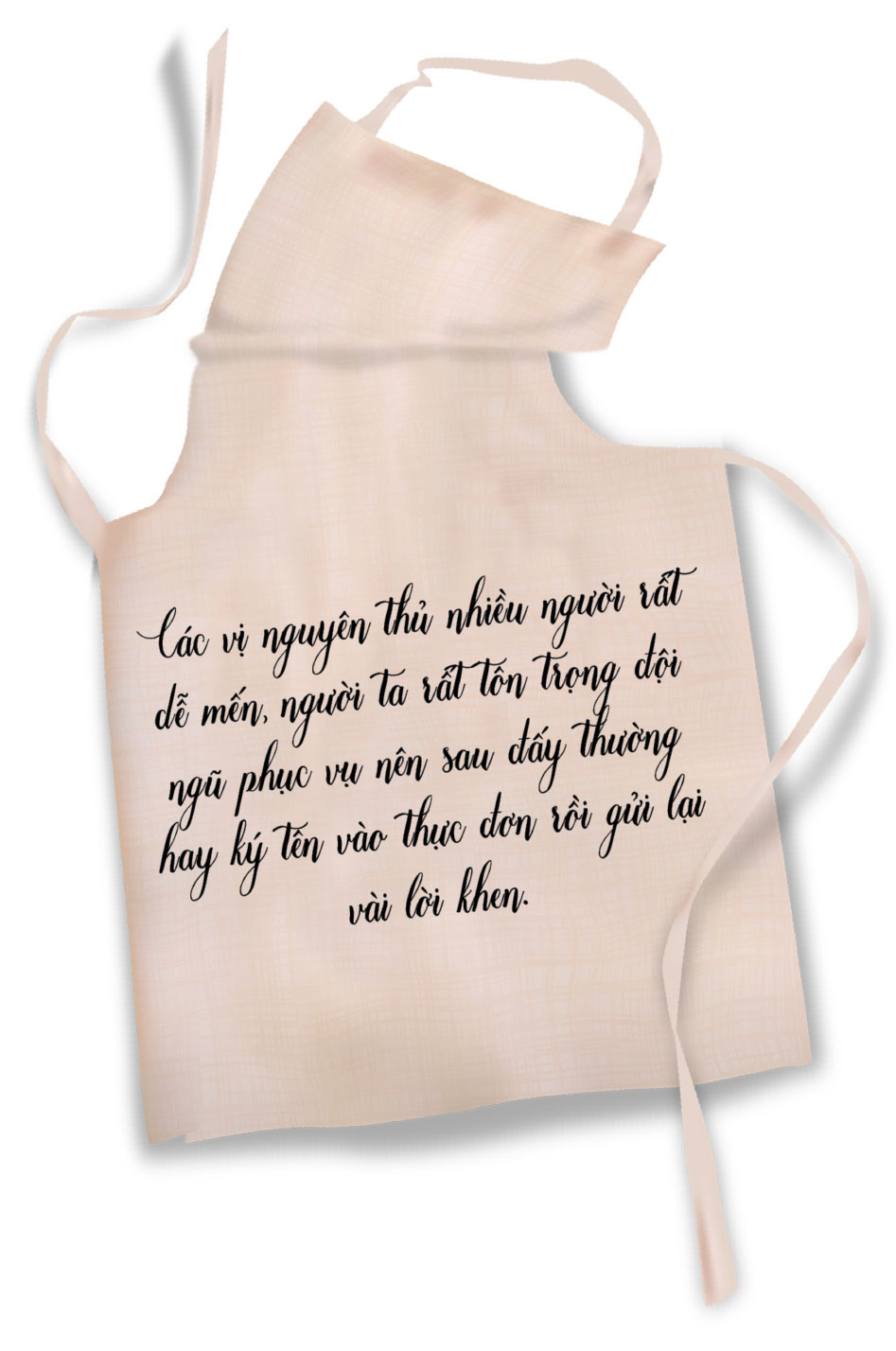
During the service to the heads of state Which country and memory is the most memorable for you ?
- Actually, when talking about memories, it's all about stress. Because the process was really stressful. Stress from the menu that had to be reviewed up and down, then the timing. For example, when guests arrive, is the food ready or not, what time to eat which dish, a large group must serve food very quickly, it cannot happen that when the last person receives the dish, the first person has already finished eating. Many details must also be paid close attention to, must ensure that hot dishes are served hot, cold dishes are served cold.
Sometimes we have to go far, like to the Presidential Palace, the Government Guest House, or even to the Embassies. Every time we go, there will be a police car accompanying us. All the food we bring will have to be transported in a refrigerated truck, with a police car in front and behind.
However, many heads of state are very likable, people respect the service team so afterwards they often sign the menu and leave a few compliments. After every meal, the service team takes pictures with the heads of state, there are many but I usually don't take pictures because I feel dirty, messy after cooking, dirty clothes, and then have to do this and that with everyone else. So if I tell the story, it's true that the memories are full of stress and fatigue.
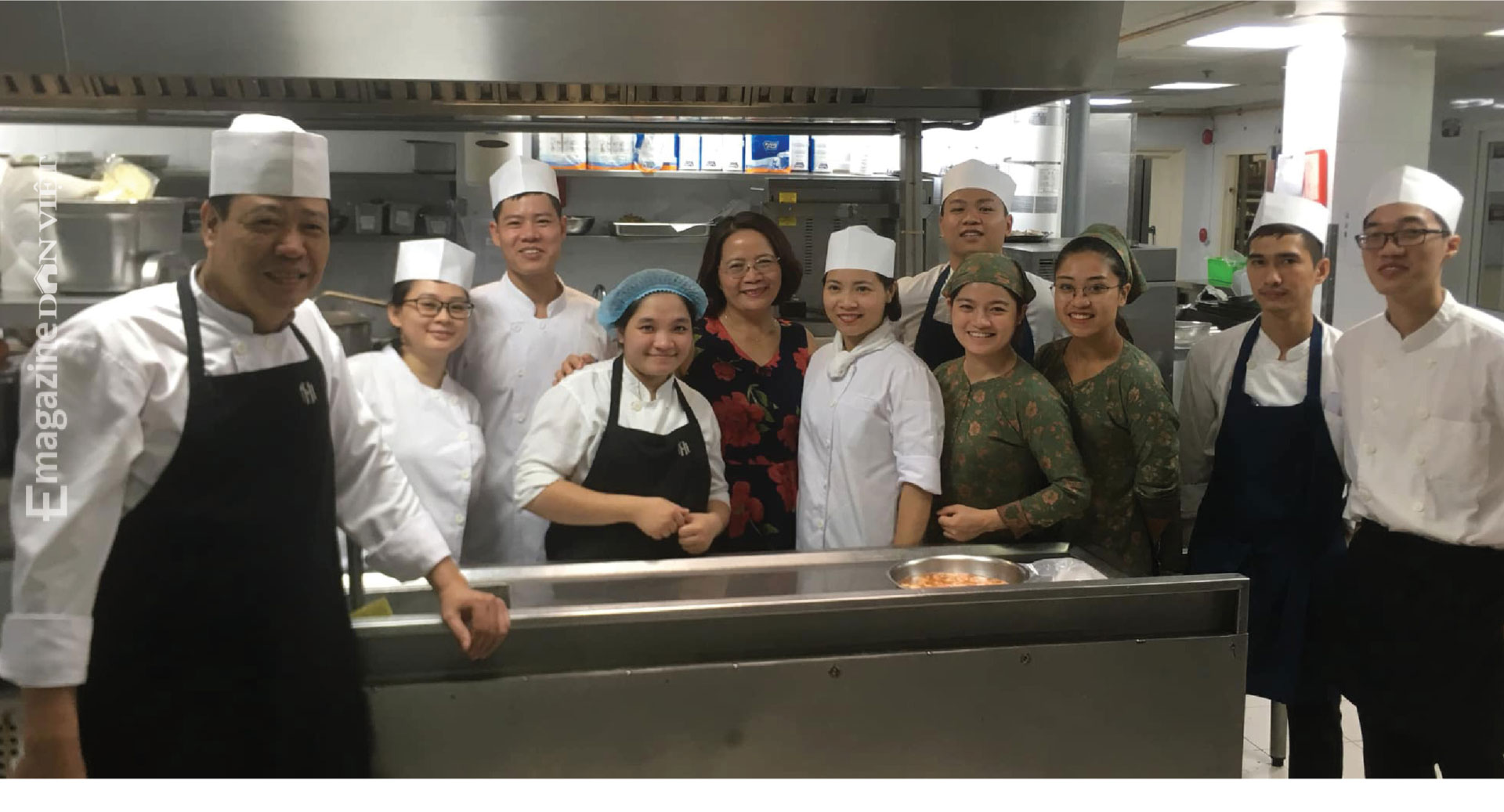
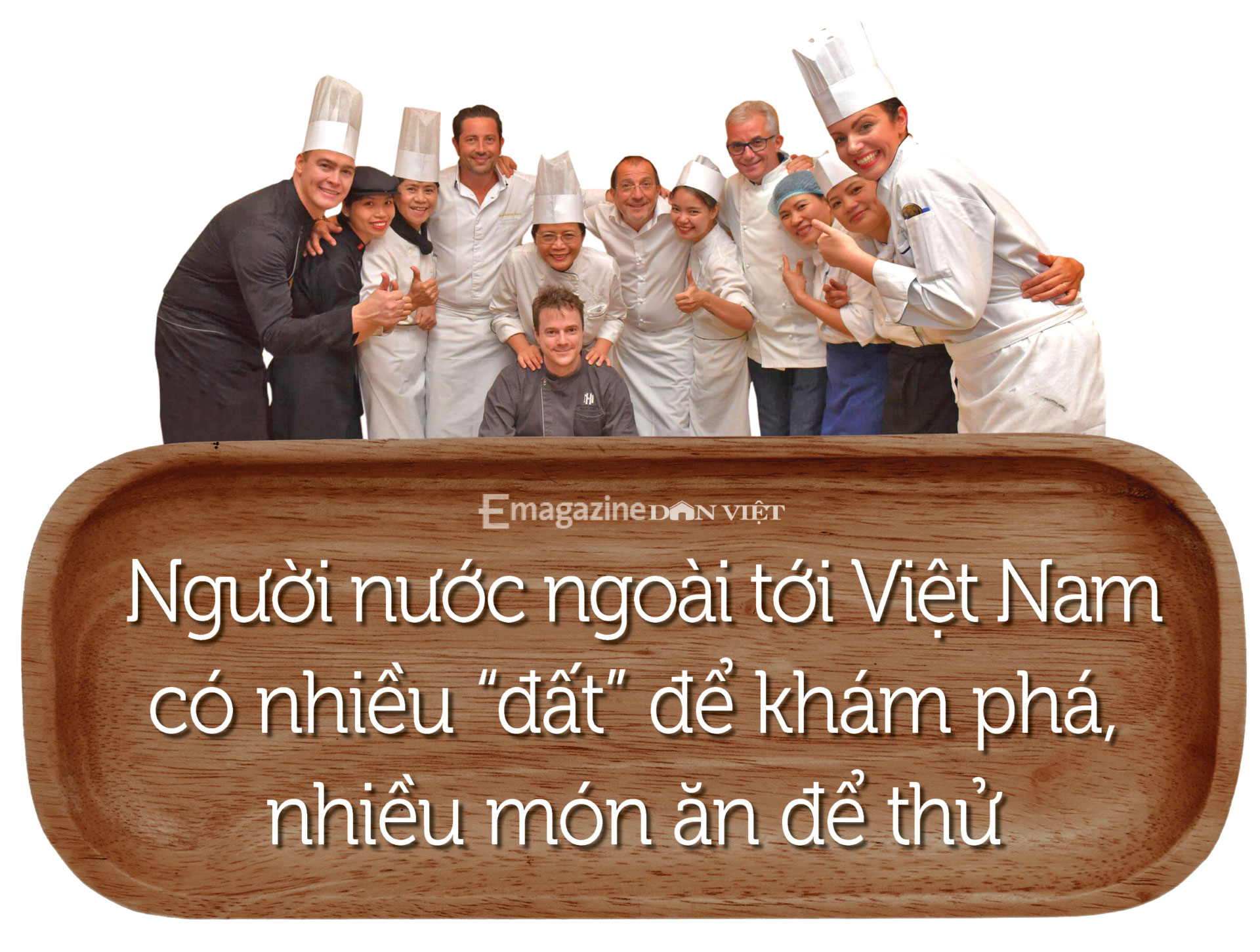
As well as the special spices you add to create the perfect balance in your dishes , how do you create harmony between your family life and your busy work life ?
- Generally speaking, this job takes a lot of time and effort, so most of the people in this profession find it difficult to balance work and family. Frankly speaking, the family will suffer more. I myself am a chef and have to be responsible for many important meals like that, I cannot leave work to go home, there are special meals, I have to be there for more than ten hours a day.
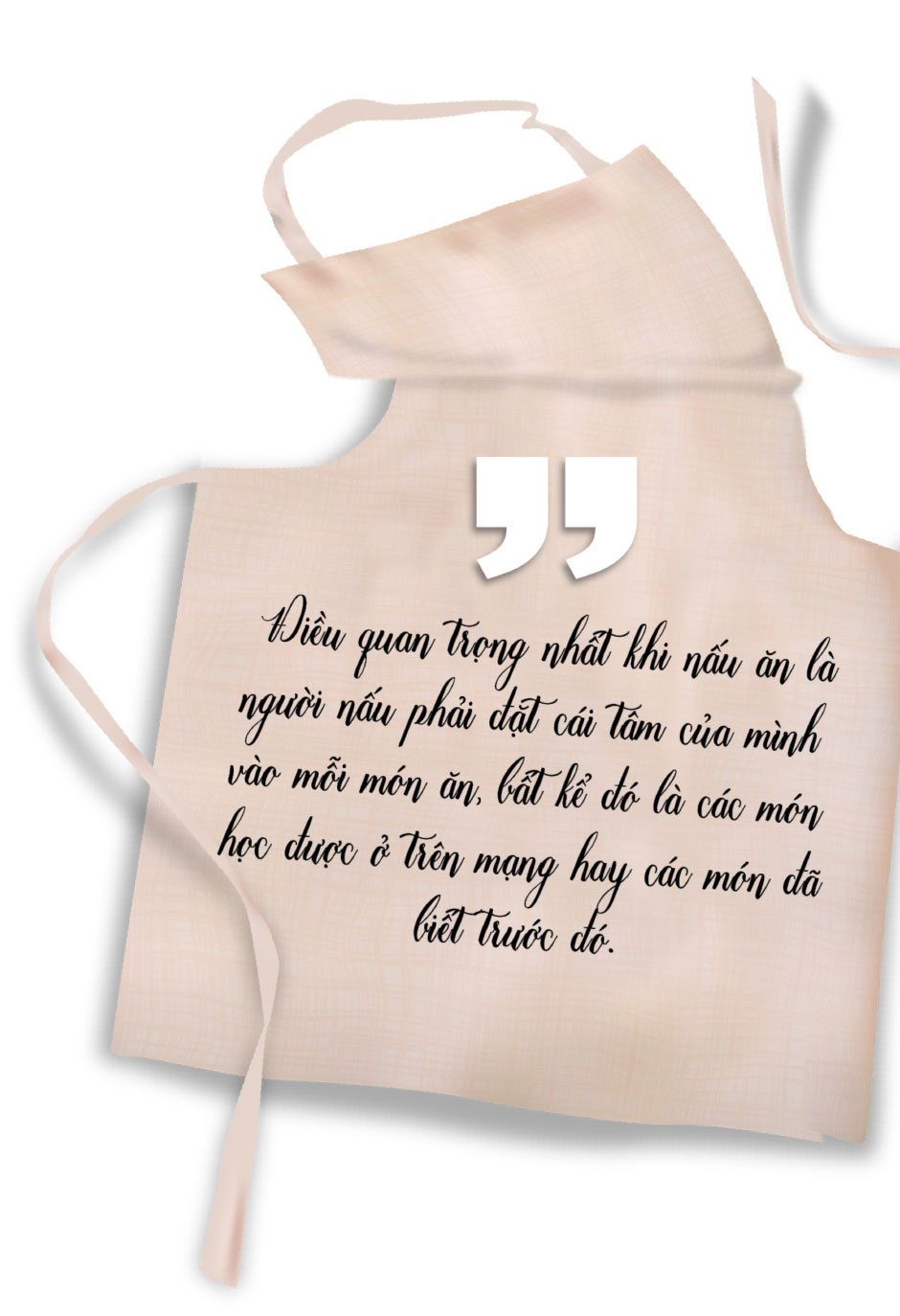
Throughout your career , have you ever encountered difficulties from your own family ?
- Everyone in my family is very supportive of me. They understand the nature of my job, so they are always worried that I will have to endure many difficulties and hardships. However, they also realize that this is a meaningful job, so in the end, my family has always supported and accompanied me throughout my journey of being a chef.
In the past , to know if a woman was talented or not , people would look at her ability to do housework . This unintentionally makes many women today feel pressured and not find comfort and happiness when cooking . So , in your opinion , is it necessary for women to be good at cooking , to cook regularly and take care of the housework of the family ?
- Women should still be good at cooking and do well in housework. However, I think it is unnecessary to cook every day because it needs to be suitable for the pace of life and the times today. Young people today have careers to strive for, their own lives, hobbies and social relationships, so being afraid of cooking or doing housework is completely understandable and acceptable. We can eat out comfortably, but whenever we have free time or are in a good mood, feel like cooking or on occasions when we are "forced" to cook, we have to cook well and deliciously.
The most important thing when cooking is that the cook must put his heart into each dish, regardless of whether it is a dish learned online or a dish he has known before. When learning about a new dish, it is not enough to just look at how they prepare it and follow it to create a delicious, flavorful dish. The cook herself needs to know how to season, filter and adjust to suit her taste. This is something every woman should cultivate and learn.
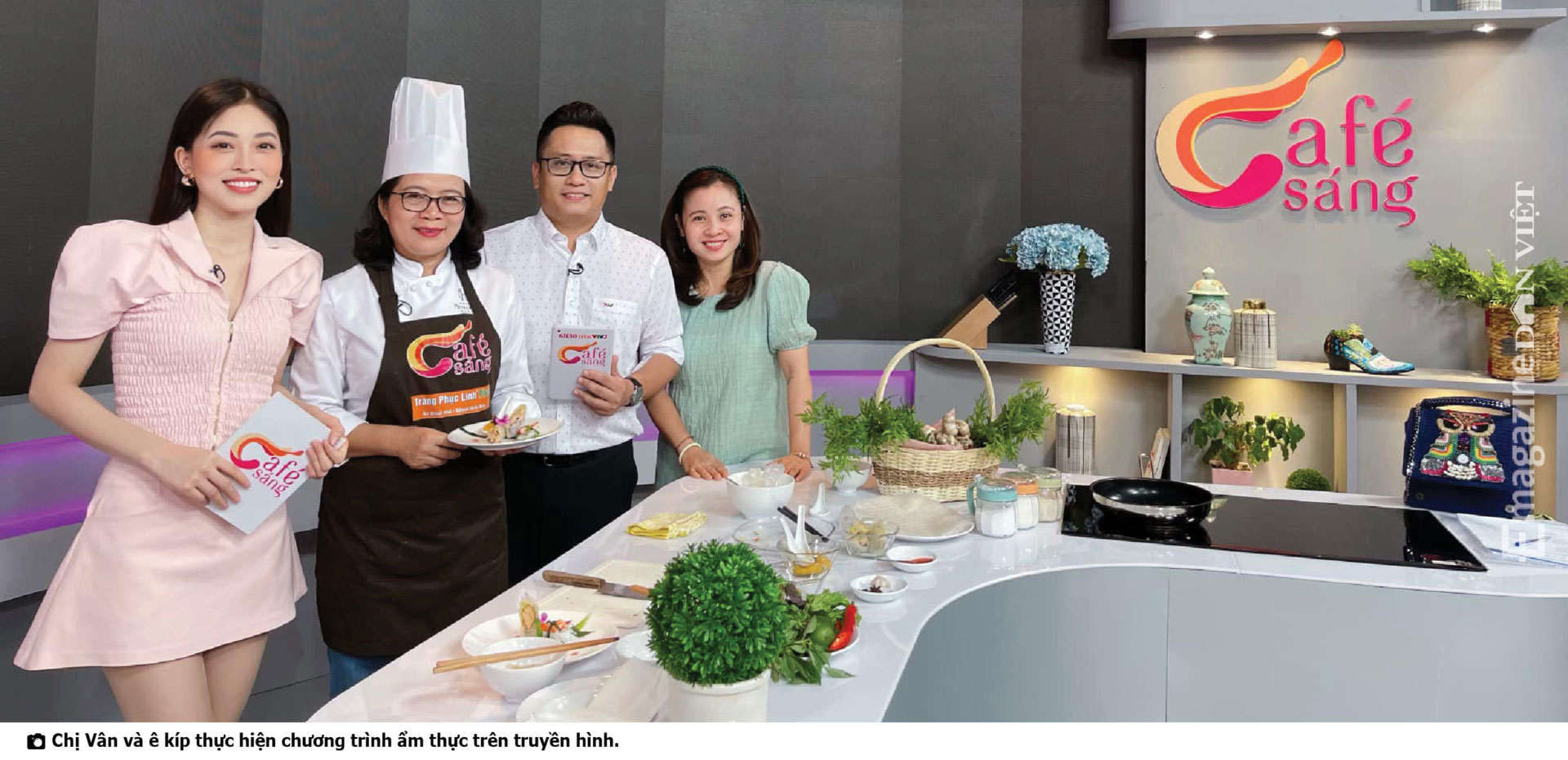
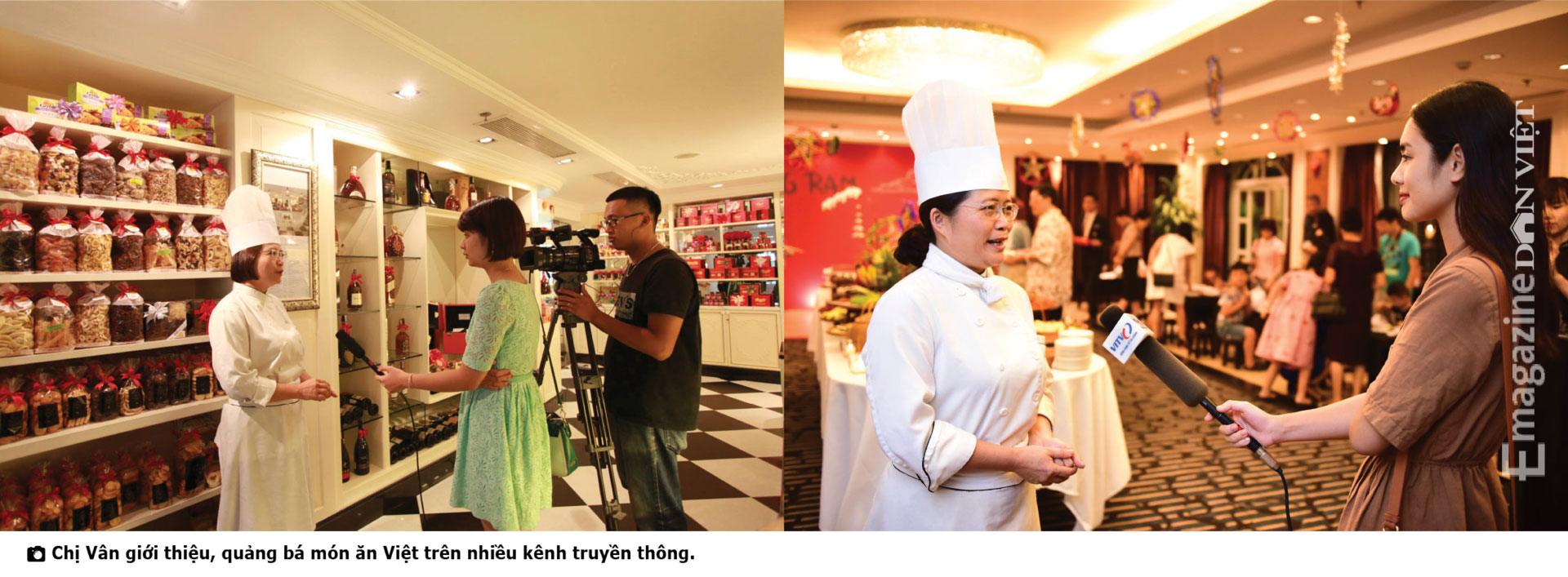
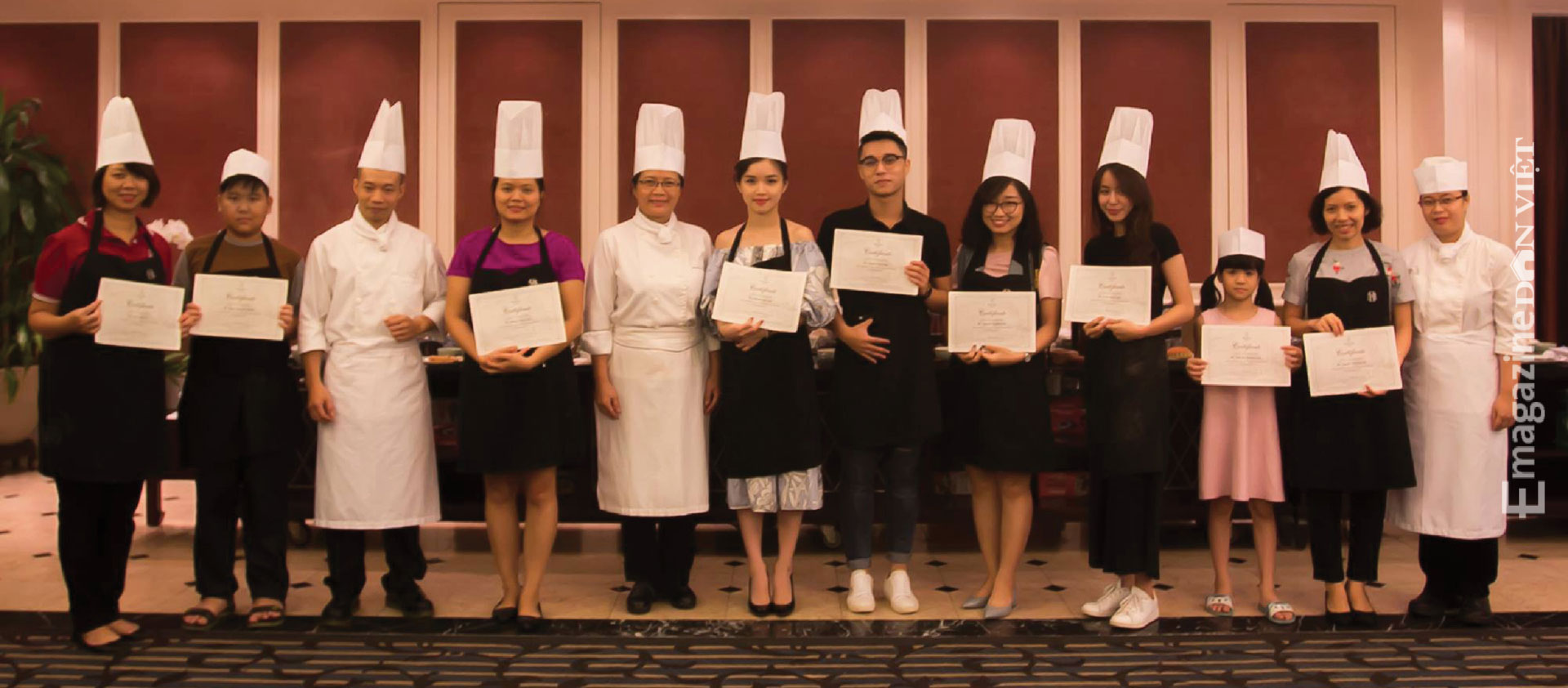
There are many chefs who choose to open restaurants to create their own culinary brand , but you still decided to stick with the Metropole Hanoi Hotel . So what special reason has " kept " you with the hotel for such a long time ?
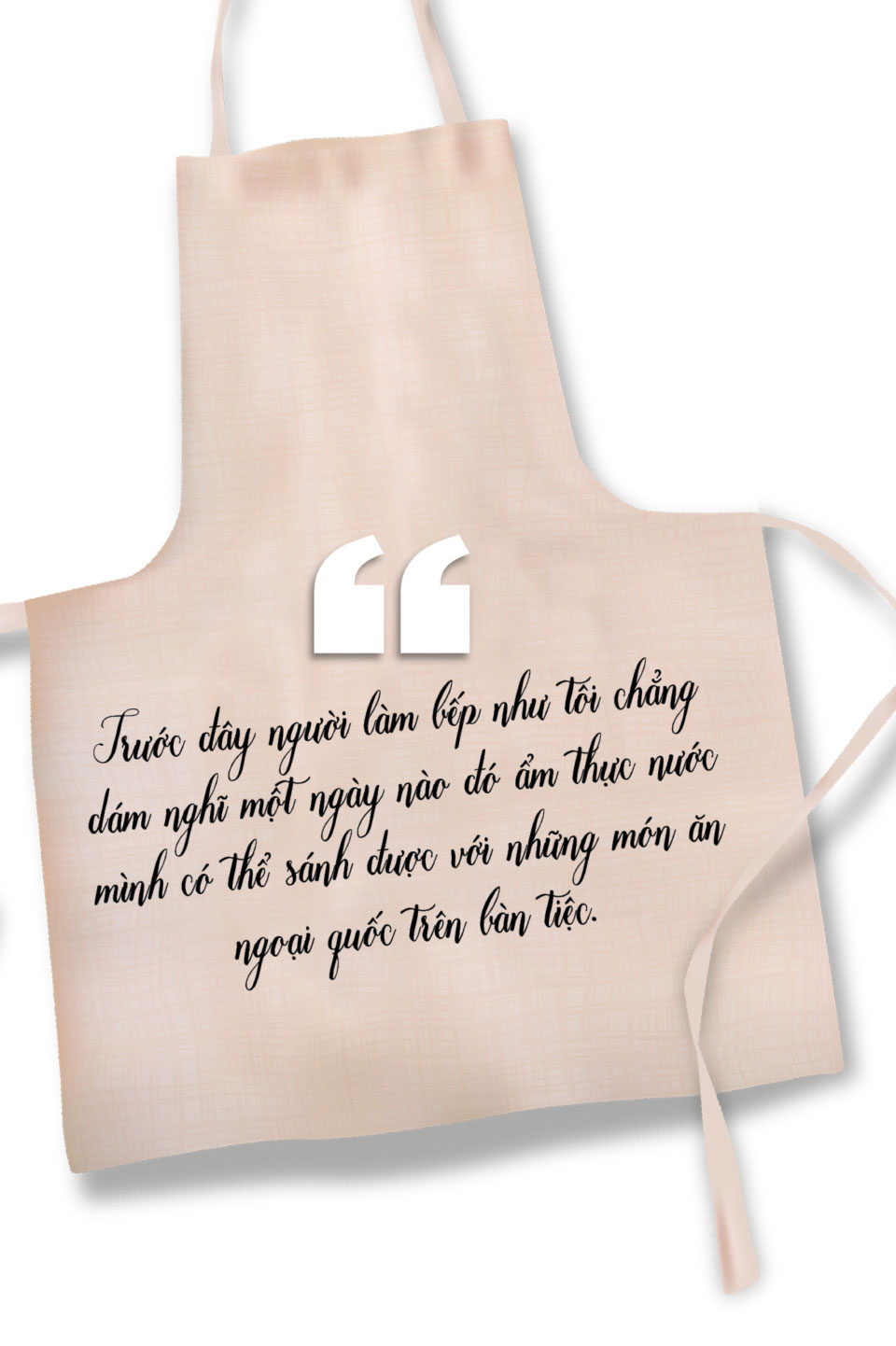
- Mainly because of the nature of the job. Honestly, it is very busy, if I focus on my work here, I will not be able to finish all day. So talking about opening my own restaurant is impossible. Another reason is that I feel that if I do both jobs at the same time, working at the hotel and opening my own restaurant, I will not be able to focus and complete my work, so I have been attached to the Metropole Hotel during that time.
She was the co - author of the book " My Vietnamese Cuisine " - a famous book that helped many foreigners learn about the rich and diverse cuisine of Vietnam . In the future , she plans to release more books about Vietnamese cuisine . Vietnamese cuisine or not ?
- Chef Didier Corlou - the person who inspired me to cook, has a great passion for Vietnamese cuisine. He spends a lot of time studying, researching and connecting with many different hotels and foreign corporations to help the chefs at the Metropole Hotel have the opportunity to go abroad and promote Vietnamese cuisine. It is also because of that love and passion that Mr. Didier came up with the idea of writing a book about Vietnamese cuisine, from which I wrote and helped him complete the book.
I spent most of my time after work accompanying him. Many nights after finishing work at the hotel, I stayed the night to write, and after finishing writing, I turned to making sample dishes to take pictures. Mr. Didier Corlou hired a very professional photographer, who specializes in taking pictures of French cuisine, to come to Vietnam to support the photography for the book. Therefore, I often went with them to the regions, to the big and small markets or to the streets of Hanoi to take pictures of ingredients, then cook and arrange the dishes beautifully for taking pictures.
This book is just a collaboration, supporting and helping Mr. Didier to complete his work more completely. If you ask me if I plan to write another book, I think not because I am retired now.
As someone with many years of experience in the profession and always actively promoting Vietnamese cuisine to the world , what do you think about the optimistic signals of Vietnam 's culinary industry today ?
- In the past, as a chef, I did not dare to think that one day our country's cuisine could be comparable to foreign dishes on the banquet table. At that time, when I saw people making and presenting European dishes that looked attractive and beautiful, I was honestly very surprised, it felt like another world was opening up before my eyes.
Currently, Vietnam has been and is aiming to open up to develop tourism and let friends around the world know more. Vietnamese cuisine is very developed and highly appreciated, attracting and conquering many people. As a chef myself, I am somewhat proud because I myself have contributed to that success.
Some Vietnamese specialties have been rated as must-try dishes in a lifetime on the pages of world culinary magazines or CNN. A typical example is pho - a dish that is rated as a must-try dish in a lifetime, for both Vietnamese and foreigners. Or spring rolls or bun cha are ranked in the top 10 list of delicious dishes in the world's general cuisine.
In addition, Vietnamese cuisine has another point that attracts international friends. That is, our country's dishes have strong regional characteristics. Each region of the North, Central, and South has its own typical dishes, eating habits, and tastes, so when foreigners come to visit, they have a lot of "land" to explore, many dishes to try. It is this diversity that has attracted and attracted many tourists to visit. With the current development, I feel very proud and feel that Vietnamese cuisine is currently developing in a positive direction with many positive signs.
Thank you for coming keep quiet
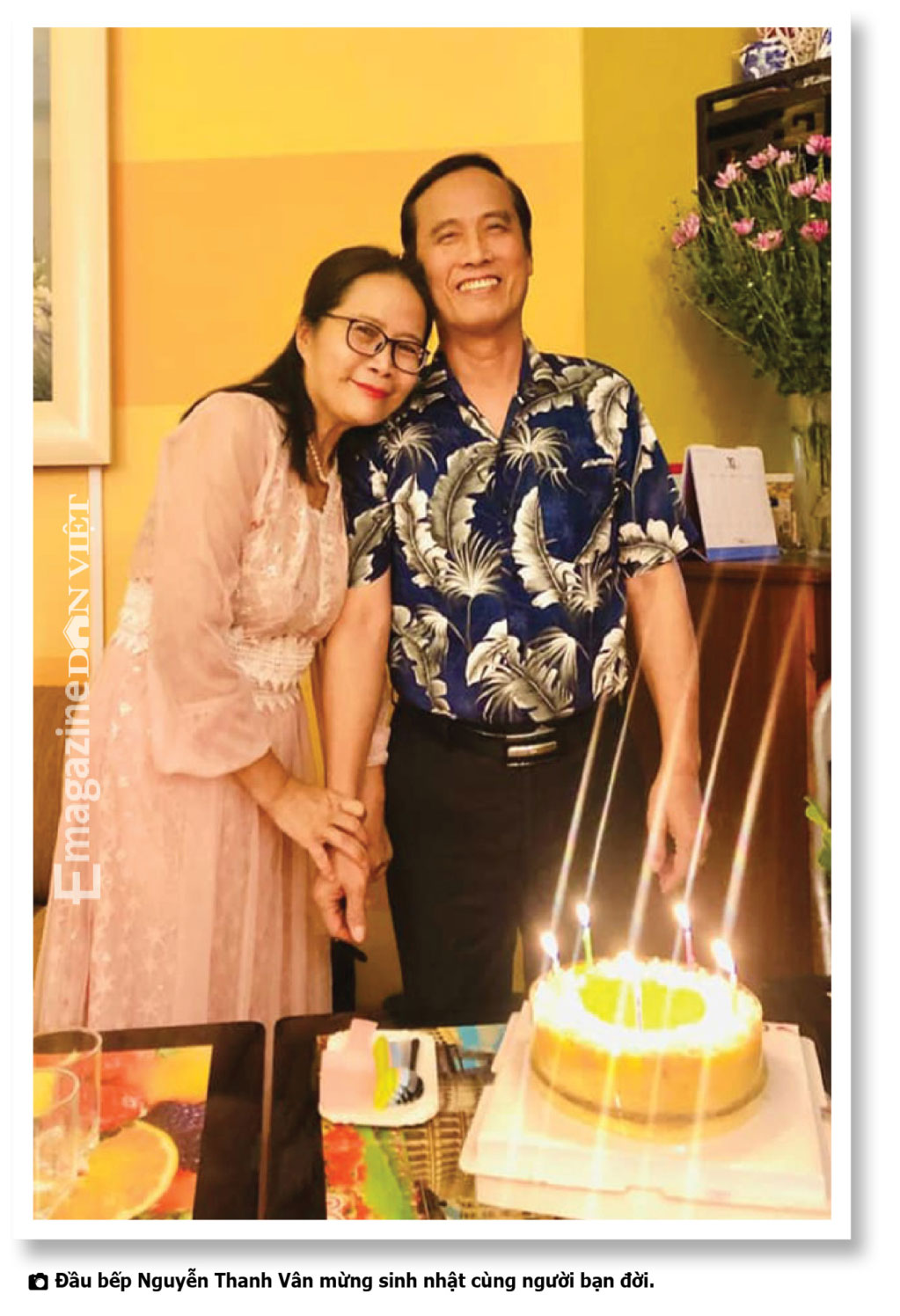

Source


















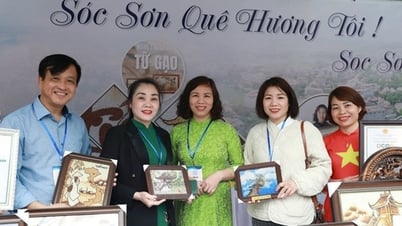








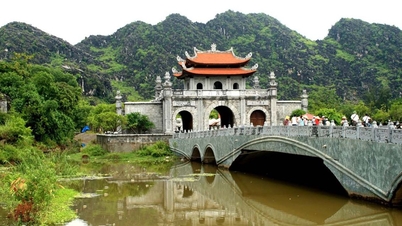





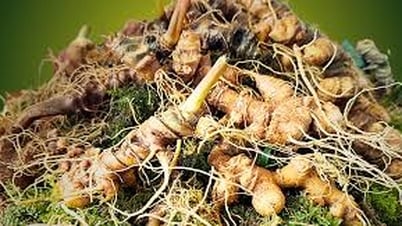


































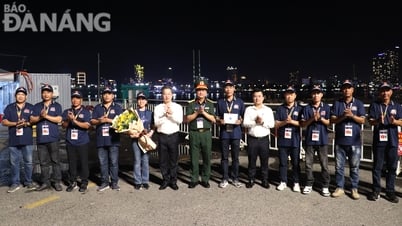













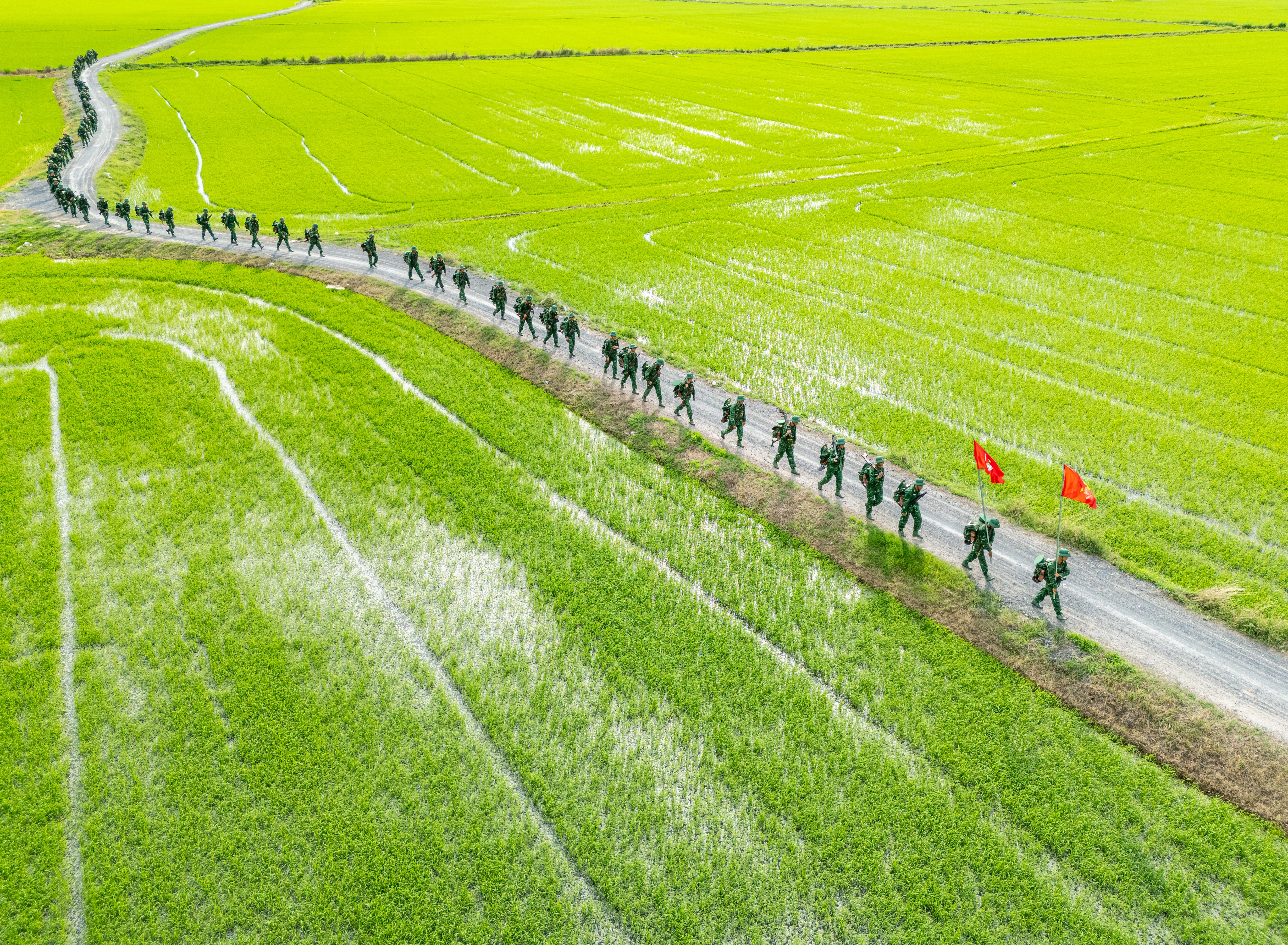



Comment (0)